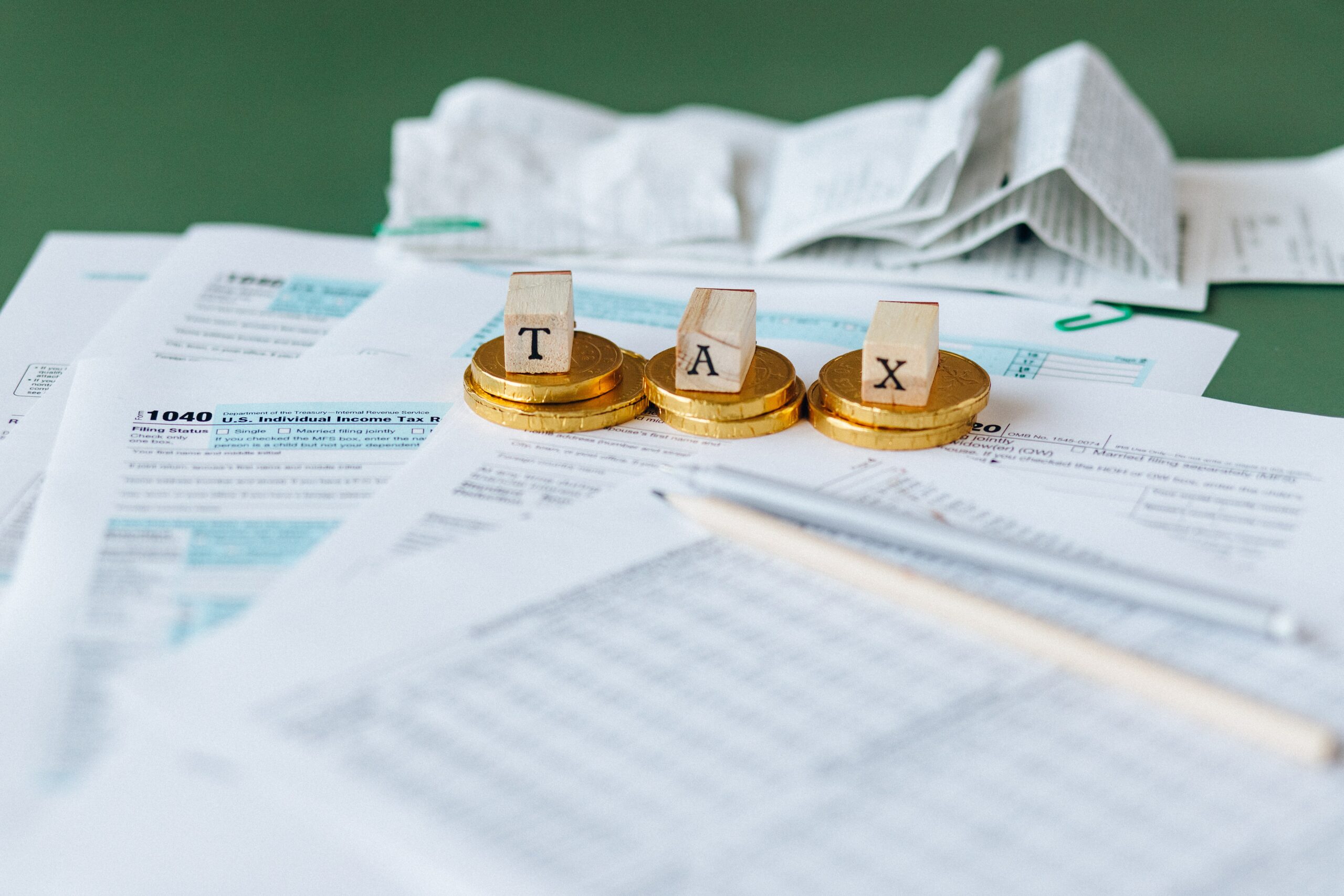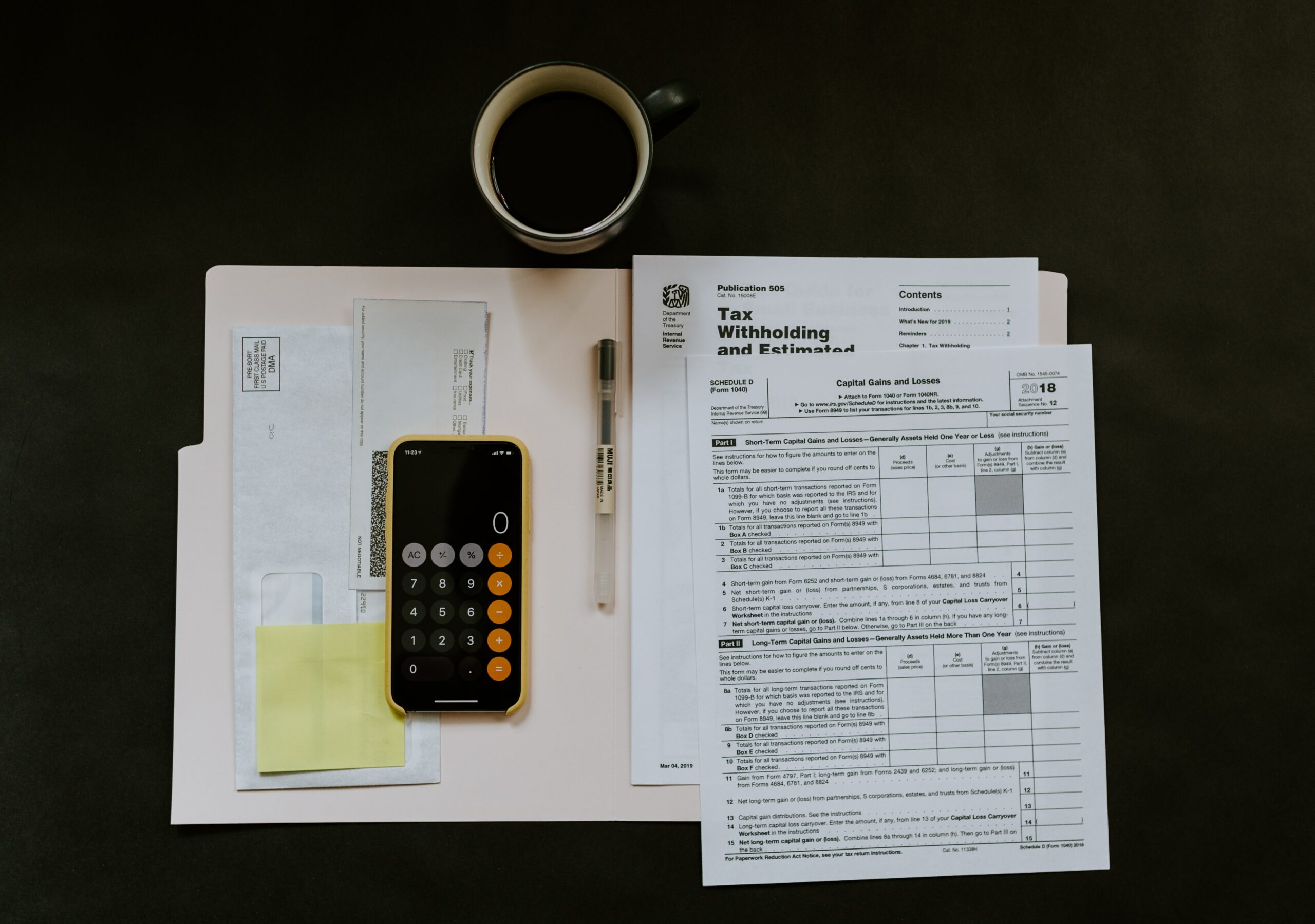
How to fill out the crypto tax
The deadline for submitting the tax return is fast approaching. Every year it drops to…
If you are sitting on a quantity of cryptocurrency – it does not matter how small or large this quantity is – then you should check which tax rules apply to you and others in the same situation.
It’s easy to forget and do it, especially if it’s just a small amount. But as I said, the size of the stock has nothing to do with it. It is the extent to which the investment has yielded a gain that is important when it comes to cryptocurrency. If it does, then you are taxable.
With that said, it is not 100% certain that you are taxable. Therefore, it is important that you, to be on the safe side, make sure to check it out so that you do not get into trouble with the Tax Administration.
In this article, we will take a closer look at the rules that apply in connection with tax when it comes to cryptocurrency. There are quite a few rules you should have in mind before you start with something like that, and a good example is which tax rules apply here.
Do you have to pay tax on cryptocurrency?
First of all: Is it the case that you have to pay tax on cryptocurrency? This is a question that can be answered in two ways. For the answer to this question may be yes, but it may also be no.
To what extent you have to pay tax or not depends on whether your cryptocurrency is considered a property or not. If the current cryptocurrency is considered a property object, then you have to pay tax. Most cryptocurrencies are considered such an object.
[caption id="attachment_6706" align="alignnone" width="1024"] Familiarize yourself with the rules of tax and cryptocurrency. Then you avoid a bang and can dispose of assets predictably.[/caption]
Only the increase in value should be taxed
However, you are only liable to tax if the value of the cryptocurrency has increased since you invested in it. Because if the value has increased, then you will make money selling it from you. And then you will have to pay tax on the gain. Another word for this is capital tax.
But it works the other way. If the value of the cryptocurrency has minimized since you bought the cryptocurrency and does not earn a single penny from selling it from you, then you can enter it in the tax return and get a tax deduction.
Not all transactions are taxable
If you are considering investing in cryptocurrency, you should first and foremost turn to the idea that you will have to pay tax on any gain, if you decide to sell it from you at a later date.
But as I said, it is very important that you investigate which rules actually apply to you, because it is not the case that you are always taxable just because you own a little cryptocurrency. There are some transactions that are not taxable at all.
Below we will take a closer look at which transactions are taxable, as well as which transactions are not.
Taxable transactions
Although not all transactions are taxable, it is not surprising that the number of taxable transactions is much greater than the number of non-taxable transactions.
In connection with cryptocurrency, you have to be aware of the tax rules if you do any of the following:
If you sell cryptocurrency for Norwegian kroner (also called NOK).
If you sell cryptocurrency for a currency other than Norwegian kroner (eg US dollars which are often abbreviated to USD, or euros which are abbreviated EUR).
If you buy cryptocurrency and pay with another form of cryptocurrency (eg if you pay some form of Altcoin, and use Bitcoin as a means of payment).
If you buy something that is not cryptocurrency and pay with cryptocurrency (eg if you order something online, or order takeaway home at the door).
If you are the recipient of a transaction as a result of a hardfork, and decide to sell it at a later date.
If you receive cryptocurrency that is a result of someone engaging in mining.
As you can see above, it is quite a lot in connection with having cryptocurrency as an asset that may mean that you have to pay taxes.
Non-taxable transactions
But as mentioned, it is not the case that absolutely all transactions are taxable. In fact, there are quite a few transactions that are not taxable at all. And the transactions in question are as follows:
If you buy cryptocurrency for Norwegian kroner (also called NOK).
If you transfer cryptocurrency from one digital wallet to another digital wallet.
If you decide to give a portion of the cryptocurrency you have as a gift to someone you know.
If someone you know has decided to give some of their cryptocurrency to you as a gift.
In practice, this means that it may be wise to buy cryptocurrency on a Norwegian crypto exchange that operates with Norwegian prices. Especially if you are Norwegian and live in Great Britain . Then you can avoid having to pay taxes.
You also do not have to pay taxes if the cryptocurrency is given away by you or given to you as a gift. But it is also quite natural, in that you do not earn anything on the transaction. It is instead a gift, so you do not spend any money on it.
How to calculate tax on cryptocurrency
If the transaction belongs to the list of taxable transactions, you have to calculate how much tax you have to pay. To be able to do this, you need to know the input and output value of the transaction.
Entry value can be defined as the amount you paid when you bought the cryptocurrency, and the initial value is the amount you received to sell it from you. By finding the difference between these two sums, you will see how much you have won or lost by selling the cryptocurrency.
If you own different cryptocurrencies, then you are only liable to tax if the cryptocurrencies have provided an overall gain. Let’s say you own three different cryptocurrencies. In practice, this means that you do not have to pay tax if only one in three has made a profit.
Registration is your responsibility
Most people who live in Great Britain and have a job that provides income know how it works to pay taxes. The tax itself is deducted directly from the salary every single month, but when it comes to the tax return itself, it is a responsibility that lies with each individual person.
In practice, this means that you are personally held responsible if the Tax Administration finds that what you have reported does not match at a later date.
It may be tempting to try to evade reporting that you own a cryptocurrency to avoid paying taxes on it. But that’s not a bad idea. The reason for this is that the Tax Administration has workers with only one task, and that is to find out who does exactly that.
So by making sure to report the correct information to the IRS, you can save yourself a great deal of trouble in the future. Because of that, we would really strongly recommend that you take this opportunity first and foremost.
You need to keep this in mind when it comes to cryptocurrency taxes
If this is the first year you are actively working with cryptocurrency, then it is not a matter of course that you know the tax rules in connection with cryptocurrency on rams already. And no one expects that from you either.
Instead, you have to check the rules that apply to you and your situation, and you do this by doing a simple search on, for example, Google. Maybe that’s also why you came to this site? Then you have come to the right place!
Below we will take a look at what things you have to keep in mind when it comes to taxes on cryptocurrencies. There are quite a few rules that apply, so these are tips that can really help. The more of this you remember, the easier it will be to enter your information.
[caption id="attachment_6709" align="alignnone" width="683"] For some, the tax return may seem like a complicated affair, but there is a lot of information to be found on the tax administration’s website and online in general.[/caption]
Have control of the input value
First and foremost, it is important that you have control over the input value. As mentioned, the entry value is the amount you pay to obtain the cryptocurrency that you have in your digital wallet.
Cryptocurrencies actually have quite a few similarities with traditional payment methods, so in connection with being taxable, the processes are very similar. The tax return must always be based on the amount that the person in question had at the beginning of the year.
However, it is not just the input value you have to remember. Instead, write down everything that can be written down and that you think may be of value.
There are many aspects that play a role in this. So in addition to writing down the entry value, you should also make sure what you might lose and what you might win.
Make an overview of all transactions
In addition, it is very important that you have control over how many transactions you have been a part of during the relevant time period. Which in connection with tax liability is an income year.
It will be much easier to sign up if you have made an overview of all the transactions in which you have participated. It does not matter to what extent the transactions in question have resulted in a gain or loss for you – because both parts belong on the tax return.
Here, however, it is important to keep in mind what we mentioned that not all transactions are taxable. We would still recommend that you list all transactions made within a year, and then you can find out which transactions are taxable at a later date.
Unfortunately, this can not be done in any other way than by creating a personal overview. Even if it is a lot of work, we can guarantee you that you will not regret it. Instead, you want to thank yourself for bothering with it a year ago.
Include any wealth tax
Remember that it is the taxpayer’s total wealth that is the basis for how much you have to pay in taxes. It is the total wealth of the person at the end of the year that is important here.
In some cases, the cryptocurrency will be included as part of your wealth tax. A good example of this is if the cryptocurrency is the result of mining, and it has still not been crossed out.
Honesty lasts the longest
As mentioned, it can be tempting not to list any of these, but remember that honesty always lasts the longest. This is a very old saying that never seems to go out of style, and neither does it in connection with cryptocurrency and taxes.
You are at all times responsible for submitting your information. And if the information should change during the income year, then it is your responsibility to make sure that the new information gets where it should go as well.
It is also important to remember that it is never too late to change your mind. Even though you may not have provided information before, you do not need to continue with it. In fact, you may end up being rewarded for the honesty you show.
If the Tax Administration finds that your information is incorrect, then they can give you additional tax . But this is an addition you can get away with by taking the initiative to be honest yourself.
How to fill in the tax return
Filling in the tax return is a process that consists of different steps. In connection with cryptocurrency you have to do this:
Collect information from all transactions of which you have been a part.
Calculate the input and output value for each transaction. Follow the rules that apply to each transaction.
Find out what you have won / lost on each and every transaction. This can be done in several ways, for example by finding the difference between the input and output values.
Report the figures to the Tax Administration.

The deadline for submitting the tax return is fast approaching. Every year it drops to…

It is not to be underestimated that many are skeptical of cryptocurrency. This has always…

In Great Britain , anyone who wants to can buy cryptocurrency . Are you one…

Cryptocurrency has always been a controversial topic – ever since bitcoin took the world by…

Last month, a press release was sent out stating that the Tax Administration will enter…

Before you start investing in cryptocurrencies like Ripple, Ethereum, Bitcoin or the like, it’s okay…